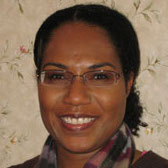
The authors of the study examined thousands of photographic images in six popular American magazines. They found that 79 percent of all images of Asians were those of women. Nearly 60 percent of the photos of African Americans were men while nearly 60 percent of the photographs of Whites were women.
The stereotypes regarding Asian men and black women that the researchers found in their study have roots in centuries-old power struggles, said Dr. Gosin. “In both cases, it was always about maintaining a particular power differential, and to do that, not only is race used but sex, too. So the intersectionality aspect has been a way to keep marginalized groups marginalized, to say, ‘Their sexuality is deviant so they could never be where we are. Their men are not as masculine as we are, and their women are hyper-masculine’ – those types of things.”
Dr. Gosin holds a master’s degree in sociology from Arizona State University and a Ph.D. in ethnic studies from the University of California, San Diego.
The study, “Gendered Race in Mass Media: Invisibility of Asian Men and Black Women in Popular Magazines,” was published on the website of the journal Psychology of Popular Media Culture. It may be accessed here.


In a study done years ago in the UK about online dating preferences revealed Black women and Asian men as least desirable compared to Middle Eastern, Asian, and white women and Hispanic, and white men. I believe it’s because Asian men come off as inept and weak and Black women as less feminine and over weight.
this study reminds me of the wonderful anthology “all the women are white, all the blacks are men, but some of us are brave”, edited by patricia bell scott and others. i think it was published over 30 years ago, yet still very relevant. discusses the intersectionality of racism, sexism, et cetera…